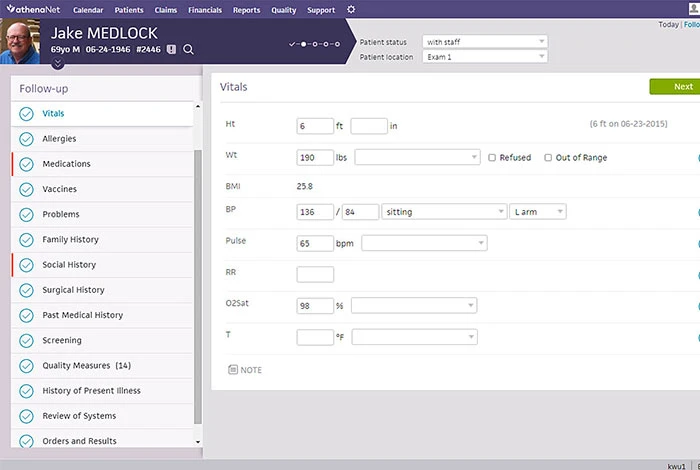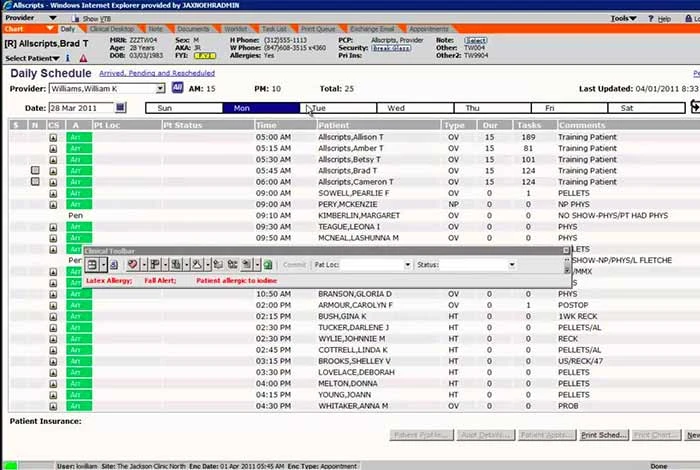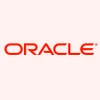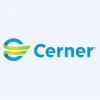With digitization, modernization, and technological advancement, the conventional method of paper-based documentation has been replaced by digitized documentation in every industry. This has also been possible in the healthcare sector due to EMR systems. It has helped clinicians and healthcare providers to focus more on their core tasks i.e., to enhance patient care.
As we are talking about EMR software, let’s try to understand how it helps. It allows clinicians to collect, monitor, and manage electronic records for patients’ medical data to identify any underlying issues. EMRs have hence resulted in increased efficiency, revenue, and productivity for healthcare practitioners.
Most medical providers now use EMR solutions to deliver better treatment, improve productivity and revenue, and perform comprehensive medical research.
In this article, we’ll share our top recommendations of EMR software list for Indian doctors. Further, we’ll also list a few beneficial functionalities to seek in the best EMR software for your requirements.
What Is EMR Software?
EMR (Electronic Medical Records) software enables medical professionals to create, store, as well as update the digital health records of their patients easily and securely. Most of the time, EMR is also referred to as EHR (Electronic Health Records).
Digital charting, order input, clinical reporting, and scheduling are some of the functionalities of EMR software that are frequently used. This software assists physicians to meet regulatory standards like HIPPA, MACRA, QMC, DCA, etc., and improves the overall quality of patient care. In addition to EMR software definition, it makes operations like appointment scheduling, billing, documentation, etc. faster for medical practitioners.
List of EMR Software for Doctors
athenahealth

athenahealth is one of the best cloud-based EMR systems for medical practices. It offers features like document management, medical billing, patient engagement, etc. to reduce administrative tasks while improving clinical productivity. This software offers a consultation-based solution for medical practitioners to provide the utmost patient care.
athenahealth Pros & Cons
- Offers an iOS app to manage inboxes, access schedules, send prescriptions, etc.
- HIPPA-Compliant
- Offers a patient portal for direct communication with doctors
- Offers third-party integrations for a fee.
Pricing: The starting price of athenahealth is ₹11,582 per month per user.
DrChrono

DrChrono is a customizable EHR suited for your unique specialty. It offers charting shortcuts & medical forms to reduce errors, boost efficiency, and provide an intuitive experience. Using this software, you can seamlessly integrate clinical workflows, scheduling, medical billing, and patient engagement into a single web-based system.
DrChrono Pros & Cons
- Fully integrated EMR with pre-made templates, custom forms, etc.
- Telehealth feature to schedule & conduct virtual meets.
- Expert billing team to speed up coding trends, regulatory billing, and claim resolution.
- The system gets slower sometimes.
- Lacks call-based customer service.
Pricing: The starting price of DrChrono’s begins at ₹20,624 / provider per month.
eClinicalWorks

eClinicalWorks is a trusted EHR software that helps you manage all your patient’s health information in one place. It also offers features like customizable reminders, e-prescribing, telehealth, custom campaigns, healthcare analytics, and better interoperability. With this software, you can access patient data anytime, anywhere. It also has a Virtual Assistant and Telehealth functionality.
eClinicWorks Pros & Cons
- Offers virtual telehealth visits using the ‘healow TeleVisits’ solution.
- Comes with a patient portal
- Helps in health & wellness data tracking
- Offers clinical templates for free to organize and present medical data.
- Software updates happen too frequently without any warning.
- Lacks a practice management tool for an “EHR only” plan.
- No free trial is available for this software
Pricing: The starting price of eClinicalWorks begins at ₹37,178 per month.
Kareo

Kareo is a full-featured, cloud-based EMR for small medical practices that are designed as well as managed by healthcare providers. It offers all the features that you need to manage your patient’s health information including charting, e-prescribing, managing electronic health records, and more. Kareo has been specifically designed for independent medical practitioners to comply with MACRA.
Kareo Pros & Cons
- Easy to use and offers 150+ customizable templates.
- Provides a Live-Compliance program to help you stay HIPPA compliant.
- Ensures simple integration with telemedicine and project management platforms.
- The system occasionally slows down.
- Offers limited customer support.
Pricing: Kareo pricing differs based on specialty and practice size. The starting price of this software ranges from ₹7244 per month per provider.
NextGen
NextGen, a modern EMR platform assists medical practices of all sizes with e-prescriptions, invoicing, scheduling, patient engagement, financial management, and other features. Using this software, medical practitioners increase their productivity and improve care coordination by producing detailed insights.
NextGen Pros & Cons
- Offers robust data analytics
- HIPPA Compliant and ONC-certified
- Offers a mobile app for both Android & iOS devices
- Some users find the interface to be confusing and cluttered.
- User might face technical issues.
Pricing: The starting price of NextGen is ₹24,435/month/user.
Allscripts

Electronic health record (EHR) software from Allscripts is a market-leading healthcare technology that meets the needs of contemporary healthcare organizations. It offers a platform for operational, wellness, clinical, and financial solutions for SMPs, ACOs, PCMHs, and FQHCs. Allscripts software is designed to ensure better patient care, simplified operations, and enhanced revenue cycle management.
Allscripts Pros & Cons
- Offers a community platform for discussion.
- HIPPA Compliant and ONC-ATCB certified.
- Provides customizable templates to document patient records.
- Switching to some other EHR in the future may be challenging due to contractual obligations.
Pricing: Allscripts pricing starts at ₹12,421 per month per provider.
Valant
With its ePrescribing functionality, Valant is a tried-and-trusted EMR and practice management solution that is best suited for medium- to large-sized businesses with psychiatrists on the team. Offers seamless psychotherapy, medication management, group counseling, etc. to bring in clinical and financial efficiency.
Valant Pros & Cons
- Specially designed for behavioral & mental health practitioners
- Provides integrated ePrescribing functionality
- Offers click-to-generate clinical reports
- Outdated UI that does not run on mobile.
Pricing: Valant pricing starts at ₹16,547 per user per month.
Suggested Read: How Does Electronic Medical Records (EMR) Improve Patient Care?
Types of Electronic Medical Record Software
- Cloud-Based EMR: Cloud-based EMR solution helps you to access information online at any time. This allows you to locate your files from anywhere. You can also store documents related to patients’ medical history securely on the cloud servers.
- Mac EMR: This type is compatible with Apple devices. Multiple options of Mac-native devices are available that are created exclusively for Mac operating systems. This kind of EMR solution is ideal for your medical practice if you use Mac devices.
- Mental Health/Behavioral EMR: EMR systems designed for behavioral and mental health practitioners give you special note taking functionalities. Additionally, they give you access to inbuilt documentation templates for file types like BIRP, DAP, and SOAP.
- ONC-Certified EMR: Adheres to the standards and requirements that have been laid down by the ONC (Office of the National Coordinator) of Health Information Technology. It enables you to store and protect confidential and sensitive patient data.
- Medical Billing: This can be integrated with medical billing software to help you verify & process insurance claims. It also assists you to generate accurate bills.
Suggested Read: List of Best Clinic Management Software in Indian
Features of EMR Software
- Tailored EMR Templates: Allows you to design your own templates so that you can quickly complete the charting process while also providing easily readable patient data.
- 24X7 Access: EMR system must be web-based so that it can be accessed on any device from anywhere using an internet connection.
- Reporting: Your EMR system must automatically create and generate customizable reports based on patient history, paperwork, test results, etc.
- Centralized Communication System: This will allow you to communicate with other doctors directly and share centralized patient data with them to speed up patient treatment.
- Scheduling Functionality: Customize your appointments and schedules at your convenience using this feature. It will centralize your admin operations and organize your calendar.
- E-Prescriptions: With this feature, quickly send prescriptions to your patients. This will enable your patients to receive their medications in a hassle-free manner.
- Patient Portals: A great way for educating patients and providing a forum for communication between them and their doctors.
- Lab Integration: Your EMR must integrate properly with your lab management system to track the delivery of test samples and the outcome.
EMR Systems Advantages and Disadvantages
Advantages of Electronic Medical Records
- EMR software keeps medical notes, test findings, and other types of data in a standard format.
- Patient records are accessible to all authorized members of the medical staff.
- Reduces transcription or handwriting errors due to incorrect interpretation.
- Authorized access to confidential patient data.
- Provides accurate and updated patient information at the point of care.
- Offers quick access to patient records for effective care.
- Facilitates easy sharing of electronic information with medical practitioners.
Disadvantages of Electronic Medical Records
- EMR systems can be very expensive at times.
- Add-Ons like a patient portal or connectivity with a medical billing partner come with extra cost.
- Staff training session is required to get your staff accustomed to the EMR software. This could be a time-consuming and complex activity for those who are not tech-savvy.
- Without adequate security measures, storing confidential patient data on the cloud puts that data at risk of being hacked.
- If your remote EMR system isn’t data-backed, a technological failure could cause data loss.
Suggested Read: Best Free Hospital Management Software for Healthcare Industry
Conclusion
EMRs or Electronic Medical Records have made healthcare operations way easier and more comfortable for physicians. Moreover, it ensures that the data entered into the system is accurate and safely stored. This has saved a lot of time for healthcare professionals and has empowered them to bring clinical efficiency.
Lots of physicians have now started adopting the EMR system to offer their clients satisfied patient-care. It also ensures that the patient involved is also aware of his/her healthcare status. There are different types of EMR software available in the market and clinicians can choose any of them as per their requirements. By using an EMR system, they can streamline their daily operations and monitor patient care with ease.
FAQs
What is EMR software in medical?
In doctor's offices, clinics, and hospitals, paper charts have been replaced with electronic medical records (EMRs). EMRs are primarily utilized by doctors for diagnosis and treatment and contain notes and information that have been gathered by and for the physicians in the clinic or hospital.
What is EMR software?
EMRs, or electronic medical records, are computerized forms of paper charts kept by doctors and other healthcare professionals. Doctors have access to their patient’s medical and treatment histories. Clinicians use EMRs to monitor patient data.
Which EHR software is best?
Some of the best EHR software include DrChrono, athenahealth, Kareo, eClinicalWorks, NextGen, Valant, Allscripts, etc.
How much is EMR software?
EMR software in India generally starts from ₹1000 per month and offers features like the patient portal, e-prescription, scheduling, customizable templates, and many more.
How to learn EMR software?
The best way to learn EMR software is to familiarize yourself with the standard features that it includes. Further, you can learn more about it by taking tutorials and online demos.
What software do medical offices use?
EMR or EHR systems are medical software that is used by medical offices. These are designed specifically to handle day-to-day activities of any medical setup. Patient appointments, diagnoses, reports, care notes, and financial data can be tracked with this software in a single place.
Related Categories: Healthcare CRM Software | Hospital Management Software | Clinic Software | Pharmacy Billing Software
Namrata is a skilled content writer with an expertise in writing marketing, tech, business-related topics, and more. She has been writing since 2021 and has written several write-ups. With her journey with Techjockey, she has worked on different genres of content like product descriptions, tech articles, alternate pages,... Read more





























